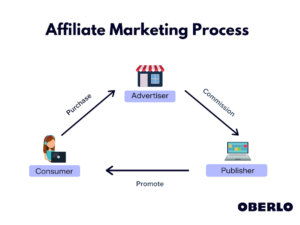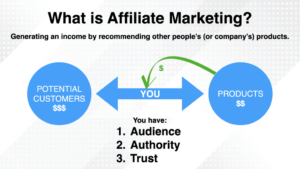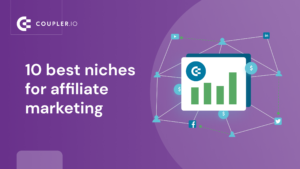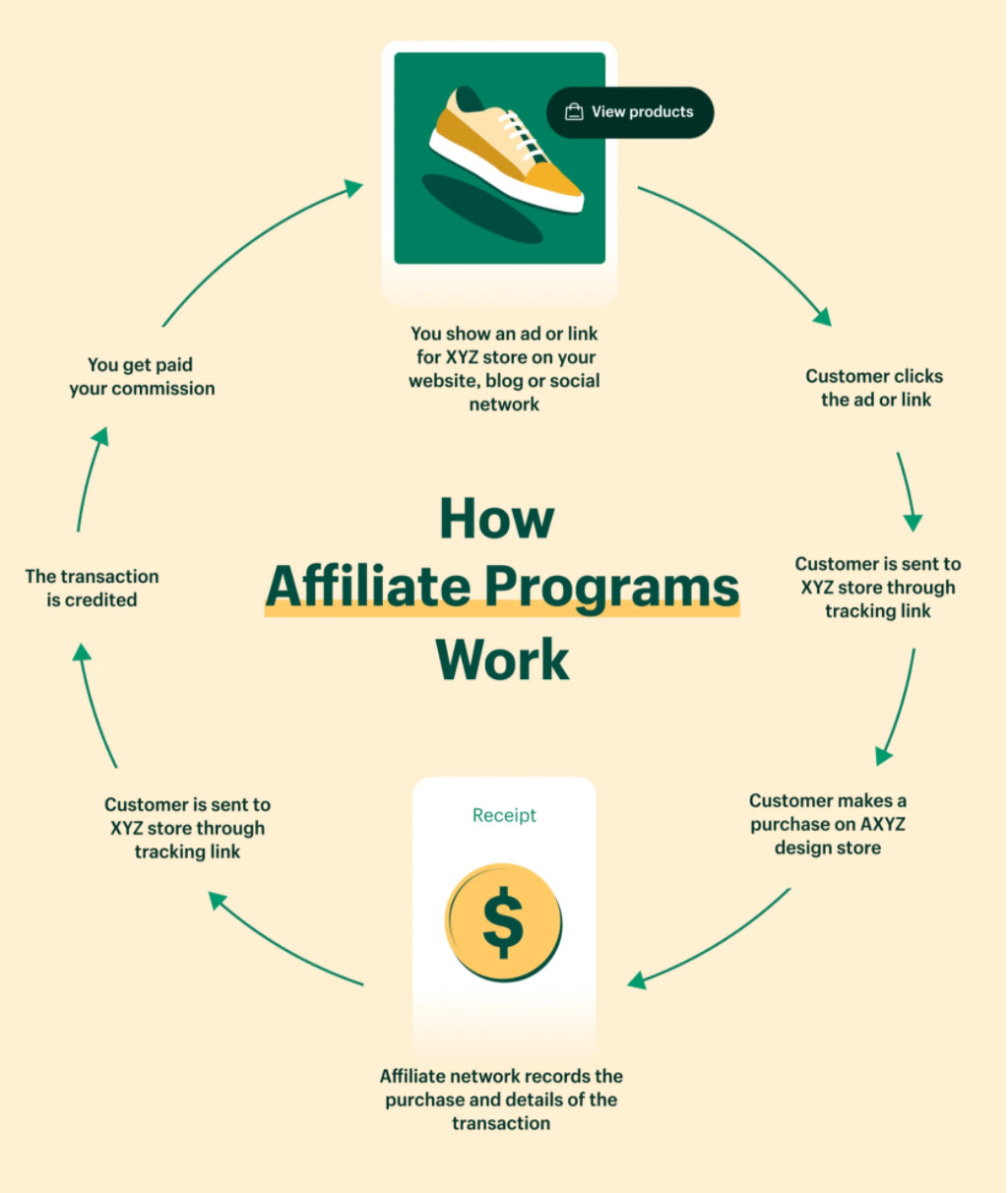
In this article, you will learn about the costs associated with Becoming an affiliate marketer. Becoming an affiliate marketer can be a great way to earn passive income, but it’s important to understand the financial investment involved.
First, there is typically no cost to join an affiliate program. Most companies or platforms that offer affiliate programs do not charge any fees to become a member. However, you will need to invest in building a website or creating content to promote the products or services you will be promoting. This could involve purchasing a domain name and hosting service, as well as investing time and effort into creating quality content. Additionally, there may be costs associated with advertising or promoting your affiliate links to attract visitors to your website. Affiliate marketing is a popular and lucrative business model that allows individuals to earn money by promoting and selling products or services for other companies. It can be an excellent way to generate passive income, work on your own terms, and eliminate the need for product creation. However, like any other business, there are costs involved in getting started and running your affiliate marketing venture. In this article, we will explore the various expenses associated with becoming an affiliate marketer and provide a comprehensive breakdown of the costs involved.
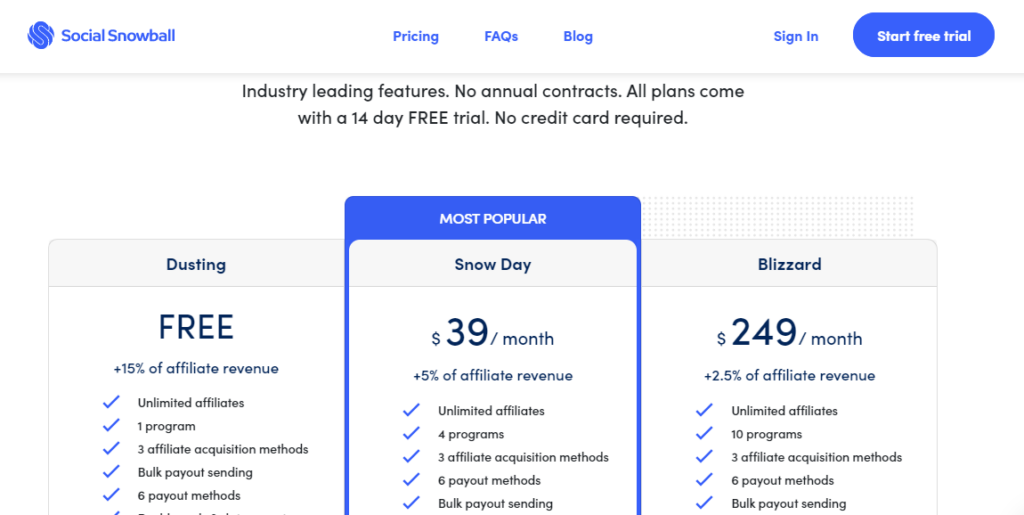
Understanding Affiliate Marketing
Before diving into the costs, let’s first understand what exactly affiliate marketing is and how it works. Affiliate marketing is a performance-based marketing strategy in which an affiliate (you) earns a commission for promoting and selling another company’s products or services. As an affiliate marketer, your role is to attract potential customers to the products or services you are promoting through various marketing channels, such as websites, social media, email marketing, and more. When a customer makes a purchase using your affiliate link, you earn a commission.
Benefits of Becoming an Affiliate Marketer
Before we delve into the costs, it’s essential to highlight the benefits that come with being an affiliate marketer. Understanding these advantages will help you weigh the costs against the potential rewards and make an informed decision about whether affiliate marketing is the right path for you.
Opportunity for Passive Income
One of the significant advantages of affiliate marketing is the potential for passive income. Once you’ve set up your affiliate marketing system and established a steady flow of traffic to your promotional content, you can earn money even when you’re not actively working. This means you have the opportunity to generate income while you sleep, travel, or pursue other business ventures.
Flexible Work Schedule
Affiliate marketing offers the flexibility to work on your own terms and set your own schedule. Unlike a traditional 9-to-5 job, you have the freedom to work whenever and wherever you choose. Whether you prefer working early in the morning or late at night, affiliate marketing allows you to tailor your work hours to fit your lifestyle.
No Need for Product Creation
One of the most significant advantages of affiliate marketing is that you don’t need to create or develop your own products or services. All the products or services you promote are provided by the companies you affiliate with. This eliminates the need for product development, manufacturing, inventory management, and customer support, saving you both time and money.
Costs Involved in Affiliate Marketing
While affiliate marketing offers numerous benefits, it’s important to be aware of the costs involved. Like any business, certain expenses are necessary to establish and maintain your affiliate marketing venture. Let’s take a look at some of the costs you can expect to encounter on your affiliate marketing journey.
Initial Setup Costs
Before you can start promoting products or services as an affiliate marketer, there are several initial setup costs you need to consider.
Website Development and Maintenance
Building a website is essential for establishing your online presence as an affiliate marketer. You will need to invest in web design and development to create an attractive and user-friendly website that effectively showcases the products or services you are promoting. Additionally, you will need to regularly update and maintain your website to ensure it remains functional and up to date.
Domain and Hosting Fees
To have a website, you will also need to register a domain (website address) and choose a hosting provider to store your website files. Both domain registration and hosting services typically involve ongoing fees that need to be factored into your affiliate marketing budget.
Email Marketing Software
Email marketing is a powerful tool for affiliate marketers to build and nurture relationships with their audience. To effectively manage your email marketing campaigns, you will need to invest in email marketing software that offers features like automation, segmentation, and analytics. These tools often come with subscription fees.
Advertising and Promotional Expenses
To drive traffic to your affiliate offers and generate sales, you will likely need to invest in advertising and promotional activities. This can include paid advertising campaigns, social media marketing, content promotion, and more. These expenses can vary greatly depending on the platforms and advertising channels you choose to utilize.
Training and Education
To succeed as an affiliate marketer, it’s essential to continuously learn and stay updated with the latest industry trends and strategies. Investing in affiliate marketing courses, coaching programs, books, and other educational resources can help sharpen your skills and improve your chances of success.
Miscellaneous Expenses
There may be additional miscellaneous expenses associated with running your affiliate marketing business. These can include accounting and legal services, tools and plugins to enhance your website’s functionality, and business registration fees, among others. While these expenses may not be as significant as the others mentioned, they still need to be taken into account.
Initial Setup Costs
Now that we’ve discussed the various costs involved in affiliate marketing, let’s dive deeper into each category and explore them further.
Choosing a Niche
Before you can begin promoting products or services, you need to select a niche or industry to focus on. This involves conducting thorough market research to identify profitable niches and finding products or services that align with your interests and expertise.
Market Research
Conducting market research is essential to identify target audiences, competitor analysis, and understand the demand for the products or services you want to promote. Market research can include analyzing keyword data, competitor websites, customer surveys, and other market intelligence tools.
Building a Website
A professional and well-designed website is crucial for attracting and engaging potential customers. Website development costs can vary depending on your requirements and the complexity of your website. Factors that can impact the cost include design, development, content creation, and integration of necessary features and functionality.
Registering a Domain
To have a website, you need to register a domain name. Domain registration fees can vary based on the domain extension (.com, .net, .org, etc.) and the domain registrar you choose. Typically, domain registration fees are paid annually.
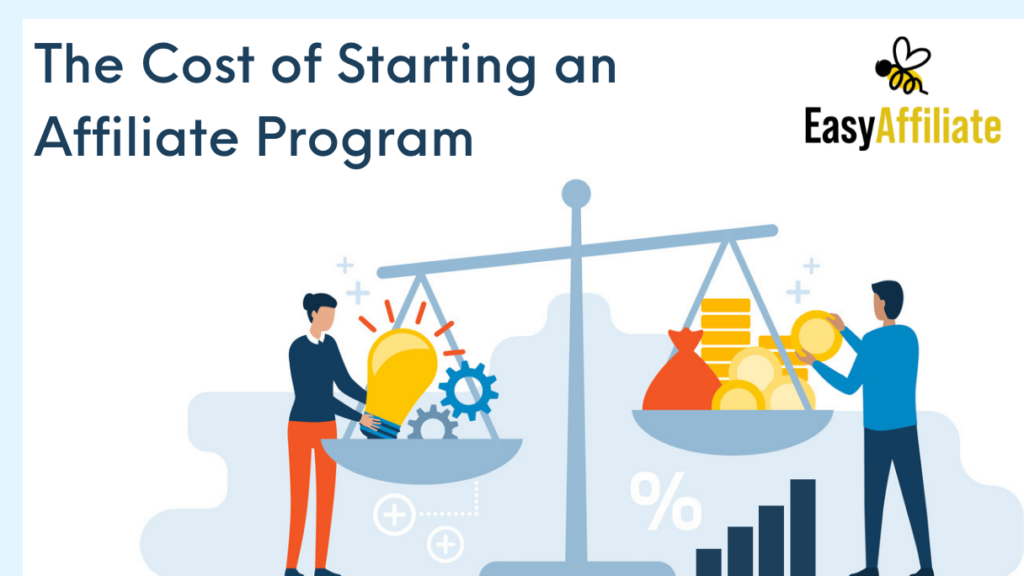
Website Development and Maintenance
Maintaining and updating your website is an ongoing process. To ensure your website remains functional and up to date, you need to consider the following costs.
Web Design and Development
If you don’t have the skills or time to design and develop your website yourself, you may need to hire a professional web designer or developer. These services can be costly, and the price will depend on the complexity of your website and the expertise of the professional you hire.
Content Creation
Creating high-quality and engaging content is crucial for attracting and retaining visitors to your website. You may need to invest in content creation services, such as hiring freelance writers or content creators, to ensure you consistently provide valuable content to your audience.
SEO Optimization
Search Engine Optimization (SEO) plays a vital role in driving organic traffic to your website. Optimizing your website for search engines requires knowledge and expertise in keyword research, on-page optimization, link building, and other SEO techniques. You may need to allocate a budget for SEO services or invest in marketing tools to help with your SEO efforts.
Security Measures
Ensuring the security of your website is essential to protect your data and your visitors’ information. Investing in security measures, such as SSL certificates and website security plugins, can help safeguard your website from potential threats.
Regular Maintenance and Updates
Websites require regular maintenance to ensure they remain functional and secure. This includes updating plugins, themes, and other software, fixing bugs and errors, and performing routine backups. If you don’t have the technical skills to handle these tasks yourself, you may need to hire a website maintenance service, which can incur recurring costs.
Domain and Hosting Fees
Choosing a domain name and selecting a hosting provider are crucial steps when setting up your affiliate marketing website. Here’s a breakdown of the associated costs.
Choosing a Domain Name
Domain name prices can vary depending on the domain extension and registrar you choose. Prices can range from a few dollars to hundreds of dollars per year, depending on factors such as the popularity and demand for the domain name.
Selecting a Hosting Provider
Hosting fees depend on the hosting package you choose and the hosting provider you opt for. Shared hosting plans are generally more affordable, while dedicated or cloud hosting plans can be more expensive but offer better performance and scalability. Hosting fees are typically paid on a monthly or annual basis.
Renewal Fees
Keep in mind that domain and hosting fees are not one-time expenses. They need to be renewed periodically. Domain registration usually needs to be renewed annually, and hosting plans require renewal on a monthly or annual basis. Be sure to factor in these recurring costs when budgeting for your affiliate marketing business.
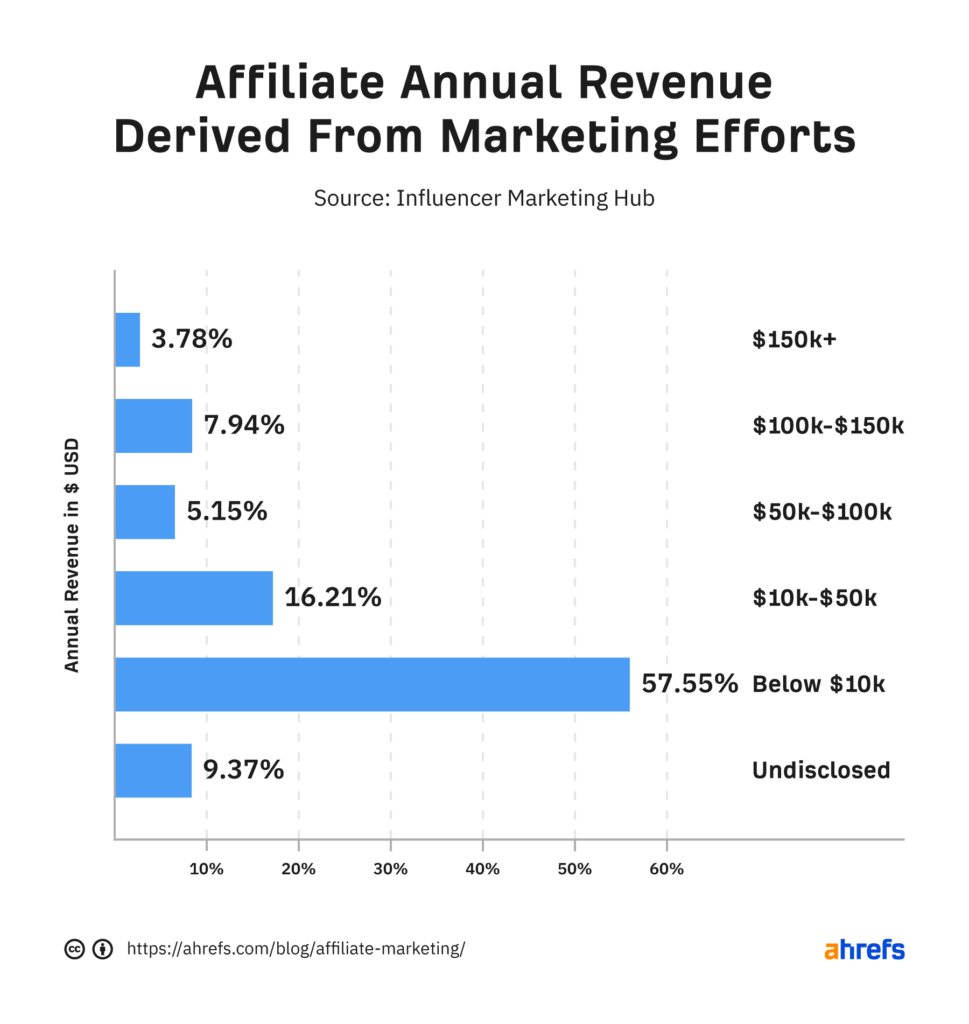
Email Marketing Software
Building an email list is an effective way to stay in touch with your audience and nurture relationships with potential customers. Here are the costs associated with email marketing.
Choosing an Email Marketing Platform
Several email marketing platforms are available, each offering different features and pricing plans. Some popular platforms include Mailchimp, AWeber, ConvertKit, and Constant Contact. The cost of email marketing platforms can vary based on the number of subscribers you have and the features you require.
Subscription Fees
Most email marketing platforms charge subscription fees based on the number of subscribers you have in your email list. As your list grows, your subscription fees will increase. It’s essential to consider the scalability of the email marketing platform you choose to ensure it can accommodate your growing list without breaking your budget.
Automation Tools
Investing in email automation tools can enhance your email marketing efforts and save you time and effort. Automation tools allow you to create automated email sequences, segment your audience, and personalize your email campaigns. Some email marketing platforms offer built-in automation features, while others may require integration with third-party tools or services, which may come at an additional cost.
Advertising and Promotional Expenses
To drive traffic and generate sales, you may need to allocate a budget for advertising and promotional activities. Here are some common expenses in this category.
Paid Advertising Campaigns
Paid advertising can be an effective way to reach a wider audience and drive targeted traffic to your affiliate offers. Popular paid advertising platforms include Google Ads, Facebook Ads, and Instagram Ads. The cost of paid advertising campaigns will depend on factors such as the platforms you choose, the competitiveness of your target keywords, and the effectiveness of your ads.
Social Media Marketing
Leveraging social media platforms to promote your affiliate offers can be a cost-effective strategy. However, it’s essential to invest time and effort into creating engaging and shareable content that resonates with your audience. While social media marketing can be done with little to no cost, you may choose to allocate a budget for sponsored posts or influencer collaborations to amplify your reach.
Content Promotion
Promoting your content through various channels, such as guest posting, influencer outreach, and content syndication, can help increase visibility and drive traffic to your website. Depending on the platforms and services you utilize for content promotion, there may be associated fees or costs involved.
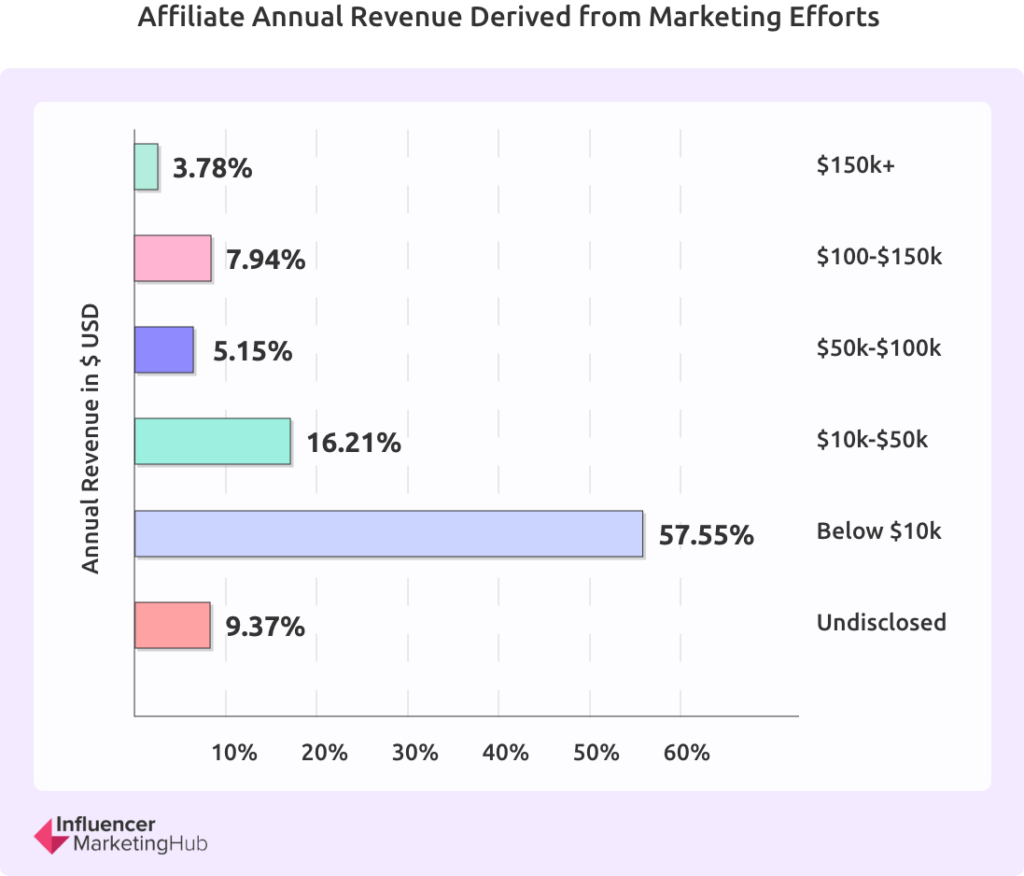
Training and Education
Investing in your knowledge and skills is crucial for success in affiliate marketing. Here are some avenues for affiliate marketing training and education.
Affiliate Marketing Courses
Many online courses are specifically designed to teach individuals the ins and outs of affiliate marketing. These courses can range in price, from affordable self-paced courses to more expensive comprehensive training programs. Research and choose a course that fits your budget and provides the knowledge you need to succeed.
Coaching Programs
If you prefer a more personalized approach, coaching programs led by experienced affiliate marketers can provide valuable guidance and mentorship. Coaching programs can be more expensive, but the insights and expertise you gain can greatly accelerate your affiliate marketing journey.
Books and Resources
There are also several books, e-books, and online resources available that cover various topics related to affiliate marketing. While books and resources are a relatively affordable option, they may require investment of your time and effort to extract useful information and actionable strategies.
Miscellaneous Expenses
In addition to the above categories, there may be other miscellaneous expenses to consider when calculating the total cost of becoming an affiliate marketer.
Accounting and Legal Services
As an affiliate marketer, you are running a business, and it’s important to ensure proper accounting and legal compliance. You may need to hire an accountant or a tax professional to assist with managing your finances and filing your tax returns. Additionally, you may require legal services to draft contracts or ensure compliance with relevant regulations.
Tools and Plugins
Investing in tools and plugins can enhance your website’s functionality and performance. These may include keyword research tools, SEO plugins, analytics platforms, and more. While some tools may come with a one-time cost, others may require monthly or annual subscription fees.
Business Registration Fees
Depending on your location and legal requirements, you may need to register your affiliate marketing venture as a business entity. This can involve costs such as business name registration, licenses, permits, or incorporation fees.
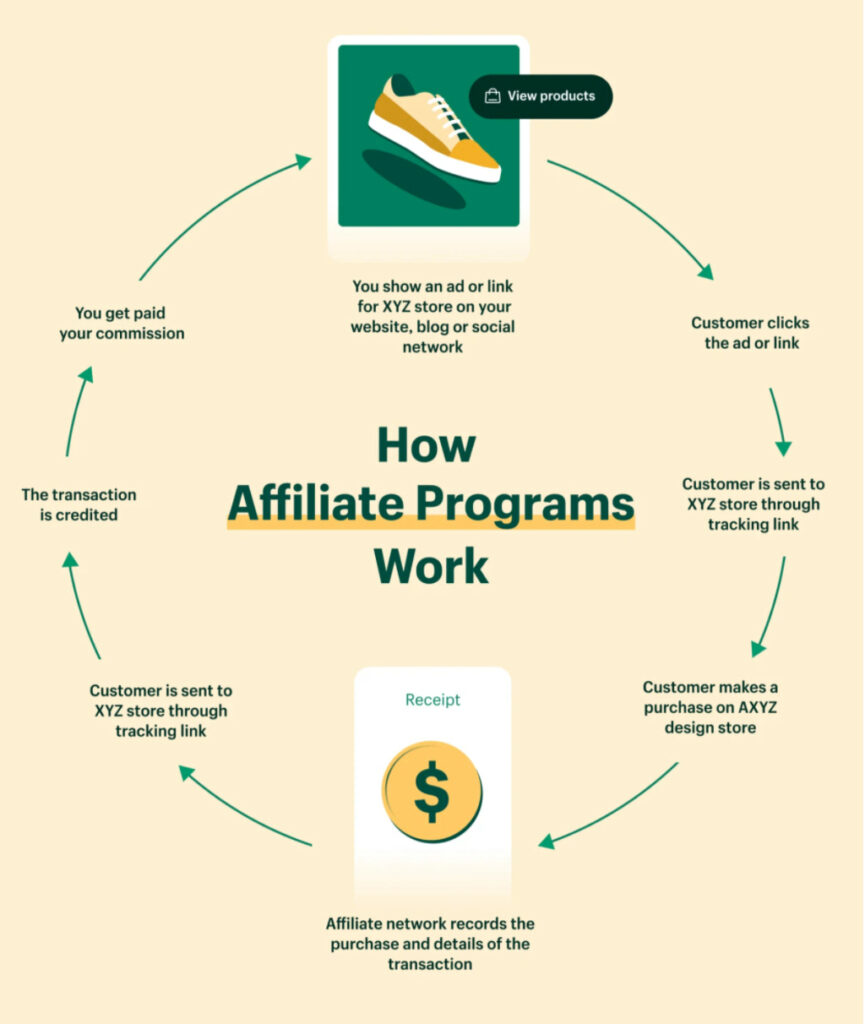
Calculating the Total Cost
Now that we have covered all the potential expenses, let’s discuss calculating the total cost of becoming an affiliate marketer. It’s crucial to consider both one-time expenses and recurring costs to accurately determine your budget.
Summing up all the Expenses
To calculate the total cost, add up the expenses in each category we discussed:
- Initial setup costs:
- Choosing a niche
- Market research
- Building a website
- Registering a domain
- Website development and maintenance costs:
- Web design and development
- Content creation
- SEO optimization
- Security measures
- Regular maintenance and updates
- Domain and hosting fees:
- Choosing a domain name
- Selecting a hosting provider
- Renewal fees
- Email marketing software costs:
- Choosing an email marketing platform
- Subscription fees
- Automation tools
- Advertising and promotional expenses:
- Paid advertising campaigns
- Social media marketing
- Content promotion
- Training and education costs:
- Affiliate marketing courses
- Coaching programs
- Books and resources
- Miscellaneous expenses:
- Accounting and legal services
- Tools and plugins
- Business registration fees
Estimating Monthly and Yearly Costs
It’s also important to calculate the monthly and yearly costs of running your affiliate marketing business. Some expenses, such as domain renewal and hosting fees, occur on a recurring basis, while others, such as initial setup costs or training programs, may be one-time or occasional expenses. By estimating monthly and yearly costs, you can better plan your cash flow and ensure you have enough funds to cover your expenses.
Return on Investment (ROI)
After understanding the costs involved, it’s crucial to measure your return on investment (ROI) to assess the success and profitability of your affiliate marketing venture.
Measuring Affiliate Marketing Success
To measure your affiliate marketing success, you need to track and analyze key performance indicators (KPIs). These may include website traffic, conversion rates, average order value, and revenue generated. By monitoring these metrics, you can identify which promotional strategies are most effective and make data-driven decisions to optimize your campaigns.
Considering ROI for Cost Evaluation
ROI is a crucial metric for evaluating the profitability of your affiliate marketing business. By comparing the revenue generated from your affiliate efforts to the total costs incurred, you can calculate your ROI. This helps you determine whether your affiliate marketing business is generating a positive return and allows you to make informed decisions about scaling or adjusting your strategies.
Conclusion
Becoming an affiliate marketer can be a potentially profitable and rewarding venture. However, it’s essential to be aware of the costs involved to ensure you can budget accordingly and make informed decisions. From initial setup costs to ongoing expenses for website development, email marketing, advertising, training, and more, affiliate marketing requires financial investment. By accurately calculating the costs and carefully evaluating your ROI, you can set realistic expectations, make sound financial decisions, and increase your chances of success as an affiliate marketer. So, take the time to plan your budget, consider your expenses, and embark on your affiliate marketing journey with confidence.
This post was made with AIWiseMind. Click here to learn more.
